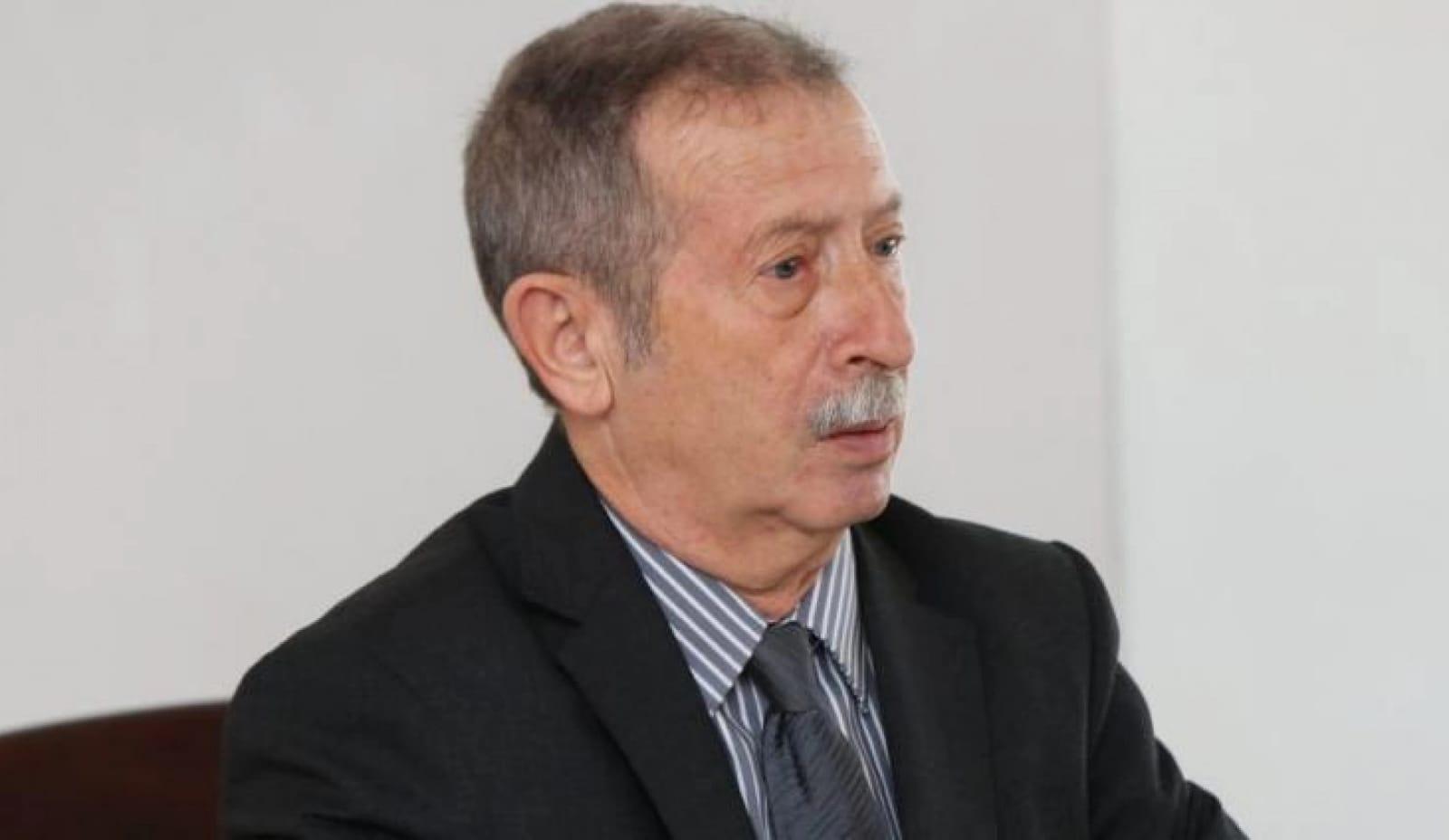Will the assassination of Haniyeh trigger a major war? Experts weigh in
The Biden administration is preparing to counter a potential Iranian attack on Israel in response to the assassination of Hamas political leader Ismail Haniyeh in Tehran. According to three US officials speaking to Axios, there is an expectation that Iran's strike could follow a similar pattern to its April 13 attack on Israel but could be larger in scale and might involve Lebanese Hezbollah as well.
Iran's Supreme Leader Ayatollah Ali Khamenei and other senior Iranian political and military officials said Iran was going to avenge Haniyeh's killing. Hezbollah leader Hassan Nasrallah also vowed to respond to an Israeli airstrike on Beirut on July 30 that killed his top military adviser.
The Biden administration is concerned that it may now be more difficult to mobilize the very international and regional coalition of countries that protected Israel from the previous Iranian attack.
US intelligence has begun to get clear signs that Iran is about to retaliate, a US official said.
Two US officials said it could take the Iranians and their proxies several days to coordinate and prepare an attack on Israel.
Another US official said the Pentagon and US Central Command are making preparations similar to those they made before the April attack.
The official said the preparations include US military assets in the Persian Gulf, Eastern Mediterranean and Red Sea. "We expect some difficult days," the official said.
Israeli intelligence expects Iran to launch a large-scale missile attack on Israel.
White House National Security Advisor Jake Sullivan said in a briefing with reporters that the risk of a wider war in the Middle East remains today. He said the Biden administration is making intensive efforts to deter a wider war and de-escalate the situation through diplomacy.
The risk of Iran launching an attack that could escalate into a larger Middle Eastern conflict or even a broader regional war is currently a matter of intense speculation. Experts have shared their insights with Caliber.Az, offering varied perspectives on the likelihood of such an event.

Amir Mohammadi Chahaki, an Iranian political scientist and specialist in Russian-Iranian relations, emphasized the difficulty in making precise predictions at this time. Given the volatile situation and the complex dynamics at play, it remains challenging to gauge the exact probability of Iran initiating a significant military action that could lead to widespread conflict.
"Iran is in a special situation. The liquidation of Ismail Haniyeh took place in Tehran, and precisely when he participated in the inauguration of the president as an official guest. And we can say that for the first time his presence was not hidden in any way, on the contrary, he was shown on all channels. And many people wondered whether there was no danger of an attempt on the life of Haniyeh, the main political representative of Hamas," the expert said.
He assured Iran would undoubtedly not leave this action unanswered, without severe punishment.
"And it should be understood that in this sense Tehran has been put in a kind of stalemate. This situation is even worse than in April, when the Iranian consular section in Damascus was shelled and Israel for the first time almost legally liquidated important commanders of the Islamic Revolutionary Guard Corps. And at that time, I and many other experts commented in the sense that Iran probably had no choice but to respond with a direct attack. And as a result, missiles and drones were indeed sent in the direction of Israel," the political scientist recalled.
This time, too, we can expect a military response within a certain number of days, he believes.
"And maybe it will not only be the firing of Iranian missiles at Israel. There will probably be simultaneous attacks from the Houthis, Hezbollah, the relative activation of Hamas, which is in a situation of direct war with Israel, and perhaps some movements of Iraq. Maybe this time Iran will not announce the timing of the attack - last time there was such a warning, Turkey, Syria, Iraq, Jordan found out about it. Maybe there will be a change in tactics. In April, the drones flew for several hours, about 1000 kilometers to Israel, that is, they were clearly detected in advance. And this time, too, NATO aviation and naval fleet will clearly participate in destroying all the missiles and drones flying towards Israel, and the Israeli air defense system will also work actively. This, I believe, cannot be avoided.
But let's ask ourselves why is this even happening? Why did Netanyahu decide to kill Ismail Haniyeh in Tehran? I mean, he's been to Qatar, he's been to Turkey, and it's not the first time he's been to Tehran. I think Netanyahu is really in a very difficult situation. He has a strong opposition inside Israel that criticizes him for not really wanting to release the Israeli hostages. There are those who believe that Netanyahu is not interested in ending the war and in a truce with Hamas, because after that the trials against him will immediately resume.
Haniyeh's murder came after the rocket attack on the Golan Heights and the deaths of 12 children there. It is true that these children were from families that did not support Israel's policies, there is such information. If these were children from Jewish families, I think the scale of Israel's retaliation would have been greater. That is, it was an excuse for Netanyahu to heat up the war again, because he and his military cabinet were sure that after their response Iran would also attack, and America would have to defend them," the specialist said.
What's going to happen next?
Should we expect a major war between Iran and Israel? In my opinion, no. In fact, neither Tehran nor Tel Aviv still wants a direct war. And the Gaza negotiations, I think, will continue to be that way. Tel Aviv realizes that if there is a direct war with Hezbollah and Iran, no matter how much stronger it is in technology and weapons, much depends still on direct daily support from the U.S. should such a scenario develop. I believe that stronger attacks and responses between Iran and Israel are possible, but it will not come to a large-scale war in the region," Chahaki said.

Expert on Iran, Dr. Vladimir Mesamed of the Institute for Asia and Africa at the Hebrew University of Jerusalem notes that what happened in Tehran "ignited" many.
“This [the incident] has drawn condemnation and strong statements from Iranian leaders. Everyone has weighed in—from Supreme Leader Ayatollah Ali Khamenei and newly inaugurated President Masoud Pezeshkian to the Foreign Ministry, Parliament, and the President’s Office. This has been accompanied by harsh statements in Iranian media. Tehran even displayed numerous portraits of Haniyeh with captions in Persian and Hebrew reading: ‘Expect a severe response.’ It’s clear that something irreversible has happened, but such events are not uncommon in Iran. Thus, Iranian diplomacy deemed it necessary to announce on July 31 that the killing of Ismail Haniyeh, the political leader of Hamas, was the result of a terrorist attack. Considering that just hours earlier, both the president and the supreme leader had affirmed that Palestinians, including Hamas, Islamic Jihad, and other groups, remain the most loyal strategic partners of the Islamic Republic of Iran, the assassination of the leader of the largest of these organizations in Tehran naturally caused a huge uproar and severe criticism of Iran’s security apparatus. Recently, it has become notorious that no major terrorist attack has been avenged. In the past four years alone, we can recall the death of General Qasem Soleimani, a top IRGC leader considered almost second in command in Iran, or Mohsen Fakhrizadeh, the ‘father’ of the Iranian atomic bomb, who was also killed in recent years. We can also mention General Khodayari, head of the division dealing with Israelis abroad, who was murdered in the last two years. These are serious failures for the intelligence agencies. Consequently, according to Iranian media reports, 24 high-ranking officials from these agencies have already been arrested,” the expert explained.
According to Mesamed, there is a widespread belief in the public discourse that the assassination of Ismail Haniyeh represents a profound humiliation for Iran and a serious breach of national security principles.
"Iran cannot ignore this and must retaliate, as the population demands. However, the exact manner of Haniyeh's assassination remains unclear. There are various theories: one suggests a missile launched from abroad, another mentions a 'Spike' missile with a 32 km range, supposedly fired from a building opposite the IRGC guesthouse where both Haniyeh and the head of Islamic Jihad were staying. There is also speculation about a bomb planted by Mossad agents.
I would like to highlight the statement from Amir Hossein Ghazizadeh Hashemi, head of the Martyrs Foundation of Iran, who argued that since Israel killed the Hamas leader, Iran should reciprocate by targeting Israeli leaders. This reflects a call for terror against Israeli officials. However, Supreme Leader Ali Khamenei's statement presents an intriguing idea. He suggests that while retaliation might involve the costly loss of a prominent figure, Iran could also demonstrate its military strength or show a shift in the balance of power in the Middle East to prove its deterrent capability.
Many Iranian media outlets point out that the assassination of Haniyeh is particularly significant as it occurred shortly after the new president took office. Consequently, he is expected to rigorously address the country's security agencies while seeking revenge, but in a manner that avoids escalating into a broader regional conflict.
There are also discussions about a planned response. It could resemble the April operation, where over 350 rockets were fired at Israel under the code name 'Firm Promise.' The current response might be called 'Firm Promise-2,' involving a greater number of rockets and drones aimed at Israel to inflict more damage.
However, one Tehran newspaper suggested that the response should be global, hinting at the possible involvement of Iran's proxy forces in neighboring Middle Eastern countries.
While it is difficult to predict the exact outcome, it is clear that a response is expected, as Iran's prestige is at stake. Iranian officials are determined to retaliate in a way that signals to Israel not to take actions against Iranian interests. It is evident that some form of action will be taken," Mesamed concluded.








